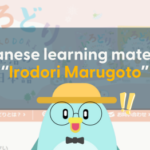Is it Better to Learn Japanese from a Native Japanese Teacher?
“I started Japanese lessons, but is it better to learn from a Japanese teacher after all?”
“Right now, I’m taking Japanese lessons from a teacher in the Philippines, but would a Japanese teacher be better?”
“Will it be easier to learn Japanese if I take lessons from a Japanese teacher?”
If you’re about to start Japanese lessons or are already learning, you might wonder if it’s more effective to learn from a native Japanese teacher. In this article, Eri-san from JPLT Online Japanese Language School will explain the benefits of learning Japanese from native teachers!
■ 5 Benefits of Learning Japanese from a Native Teacher
1. Accurate Pronunciation and Intonation
Example:
Native Japanese teachers can teach precise pronunciation and intonation, helping you speak naturally. For instance, they can guide you on the correct pronunciation of “arigatou,” ensuring you express gratitude naturally.
2. Understanding Culture and Customs
Example:
Japanese is deeply connected to its culture and customs. Native Japanese teachers can explain the cultural and social context behind the language. For example, when teaching keigo (polite language), they can explain the underlying Japanese etiquette and social rules.
3. Practicing Natural Conversations
Example:
Lessons with native Japanese teachers involve real-life conversation practice. For instance, role-playing scenarios like shopping or ordering at a restaurant helps you develop practical speaking skills.
4. Teaching Correct Grammar and Expressions
Example:
Native Japanese teachers can accurately teach the subtle differences and nuances of grammar. For example, they can teach the difference between “~tai desu” [~たいです] and “~tagatte imite” [~たがっています] and teach you how to use them in appropriate situations.
5. Providing The Latest Japanese And Trends
Example:
Native Japanese teachers are familiar with the latest words and trends used in Japan. For example, learning the latest youth slang and new expressions will help you speak more modern and natural Japanese.
■ 5 Points to Keep in Mind When Learning from a Native Japanese Teacher
1. Be Aware of Cultural Differences
Example:
There are big differences between the cultures of Japan and other countries. The manners and etiquette that your teacher teaches you during class are based on Japanese culture, so you may be confused. For example, you need to understand and adapt to the use of honorific language and the custom of avoiding direct expression of opinions.
2. Choosing Materials Suited to Your Level of Japanese
Example:
It is important to use materials that match your level of Japanese. Japanese teachers often speak a high level of Japanese, so beginners may find it difficult. It is important to choose appropriate materials according to your level of understanding and proceed in consultation with your teacher.
3. Clarifying Your Learning Goals
Example:
It is important to clarify what you are aiming to learn Japanese. The content and progress of the lesson will change depending on your goal, whether you want to learn business Japanese or focus on everyday conversation. Tell your teacher your goal and ask them to teach you according to it.
4. Actively Ask for Feedback
Example:
Nativee Japanese teachers may be hesitant to give direct feedback. Actively ask questions about your progress and areas for improvement and ask for specific advice. For example, asking specifically, “How is my pronunciation?” will give you more detailed feedback.
5. Do Not Neglect Self-study Outside of Lessons
Example: In addition to lessons, self-study is also important. By reviewing what you learned in class and increasing the opportunities to use Japanese in real life, you can improve your learning. For example, make self-study a habit by writing a diary using the words and grammar you learned in class and talking with a language exchange partner.
■5 Things to Watch Out for When Not Learning from a Native Japanese Teacher
1. Be Careful of Mistakes in Pronunciation and Accent
Example: Intonation and pronunciation are important in Japanese. If you learn with a non-Japanese teacher or on your own, you may not be able to correctly learn subtle differences in pronunciation and accents. For example, to accurately learn words with different accents such as “hashi” (bridge) and “hashi” (chopsticks), it is important to refer to native pronunciation. Make use of audio materials and recordings of native speakers.
2. Understanding Cultural Background
Example: Language is closely linked to culture. If you use a non-Japanese teacher or materials, you may not understand the unique culture and customs of Japan. For example, knowing cultural backgrounds such as how to use honorifics and seasonal events is essential to understanding Japanese. Be proactive in learning about Japanese culture and history.
3. Accurate Grammar Understanding
Example: Japanese grammar is unique, and misunderstanding it can cause communication problems. If you are a non-native instructor or self-studying, you may misunderstand subtle nuances in grammar. For example, use reliable grammar books and online resources to accurately understand the difference between particles (such as “ga” and “wa”).
4. Ensure Opportunities to Practice
Example: Language is improved by using it. If you have few opportunities to interact with Japanese people, it will be difficult to acquire practical Japanese skills. For example, find a language exchange partner or join an online Japanese community to increase the opportunities to actually use Japanese.
5. Checking Quality and Diversity of Learning Materials
Example: If you are self-studying or a non-native instructor, you need to be careful about the quality and diversity of the teaching materials you use. Using low-quality teaching materials may lead to learning incorrect knowledge. For example, using multiple teaching materials together and learning Japanese from different perspectives will give you a deeper understanding. Choose reliable teaching materials and resources.
■Summary: There Are Great Benefits to Learning Japanese From a Native Japanese teacher!
There are many benefits to learning Japanese from a Japanese teacher, such as accurate instruction in pronunciation and intonation, understanding culture and customs, practicing natural conversation, teaching correct grammar and expressions, and providing the latest Japanese and trends.
If you are not learning from a native Japanese teacher, it is important to pay attention to pronunciation and accent errors, deepen your understanding of the cultural background, understand accurate grammar, secure opportunities to practice, and check the quality and diversity of teaching materials.
By being aware of these points, you can maximize the effectiveness of your Japanese language learning.





